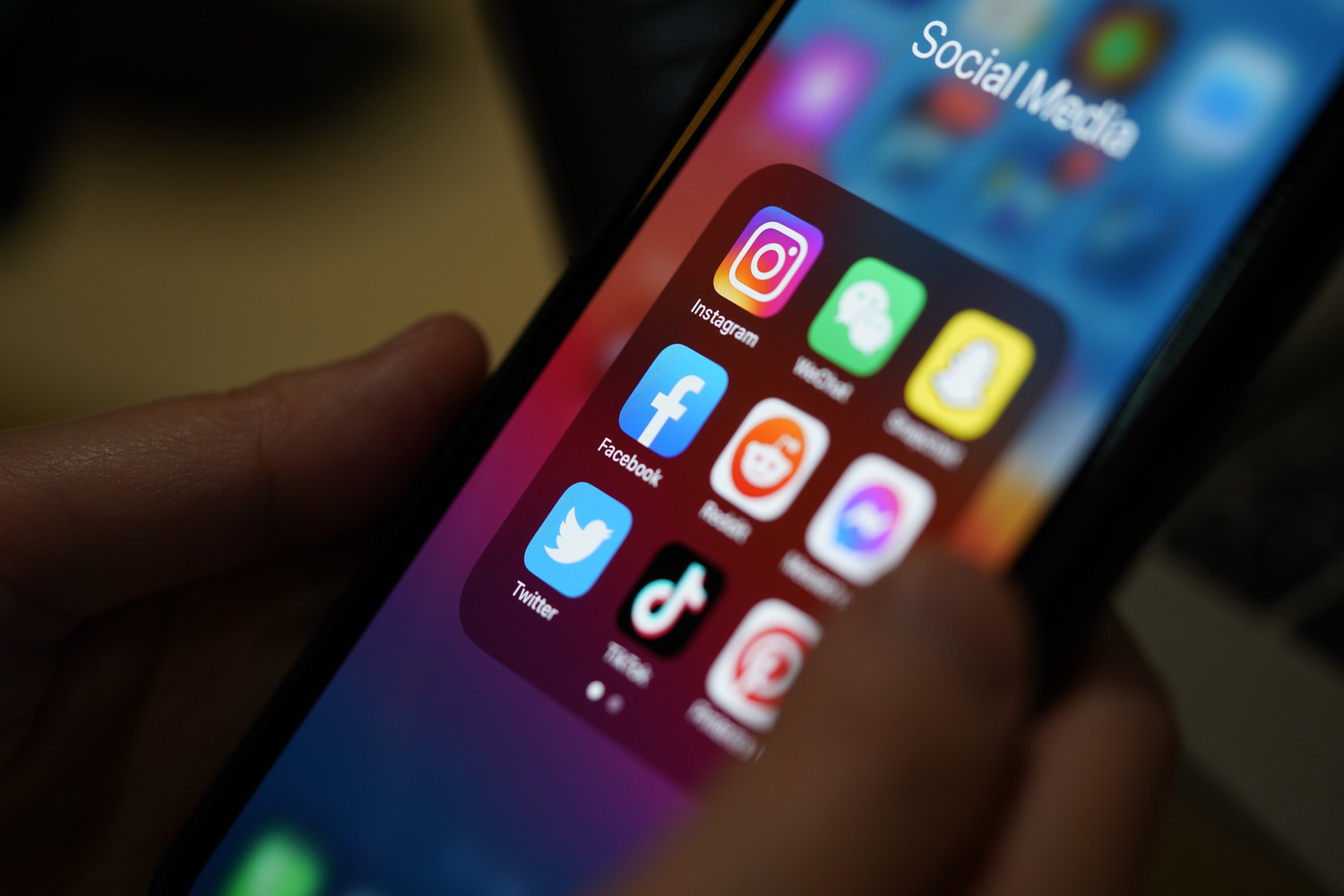 In less than four weeks the Australian government’s ban on social media for under 16s is set to come into place in the hope it will improve the wellbeing of young Australians.
In less than four weeks the Australian government’s ban on social media for under 16s is set to come into place in the hope it will improve the wellbeing of young Australians.
However, there are concerns that restricting access to social media platforms may also pose mental health risks for certain groups of young people including those who are LGBTIQA+ and neurodivergent.
Under the newly created social media minimum age laws effective as of December 10, the government has selected specific platforms which must take what it describes as “reasonable steps” to prevent those under 16 years of age from holding accounts.
The nine platforms that will be subject to the new laws are Facebook, Instagram, Snapchat, TikTok, YouTube, X, Threads, Reddit and Kick.
These platforms could be subject to fines of up to $49.5 million if they do not take the steps necessary to verify the age of users.
Minister for Communications Anika Wells has said the measures would give kids a reprieve from the “persuasive and pervasive pull” of social media while giving parents peace of mind.
However, Children and Young People with Disability Australia (CYDA) and WAAC, an organisation that provides sexual health and support services in WA, have concerns about the impact that reduced access to online platforms may have.
RELATED: Like, comment, share – the toxic influence on men’s mental health
CYDA chief executive Skye Kakoschke-Moore said: “Social media offers young people with disability one of few accessible ways to bond with peers, express their identities, participate in advocacy, and access important information and news.
“It’s particularly vital for those who cannot always connect in person, either due to inaccessible physical spaces or the ongoing risks posed by COVID-19 for those who are immunocompromised.”
A report by the e-Safety Commissioner found that seven in 10 young people with disability said it was easier to be themselves online compared to 59% of their non-disabled peers, and one in four uses it weekly as a way to make friends.
“Restricting access for under-16s carries real mental health risks, worsening social isolation by barring them from the platforms they use for connection, community participation, and self-expression, Ms Kakoschke-Moore said.
She added that young people over 16 may also be impacted by the ban if the age-verification systems adopted by social media companies were inaccessible.
“Age-assurance technologies, including ID checks or AI-based facial recognition, can discriminate against people with disability if they are not thoughtfully and deliberately designed and tested to be inclusive,” she said.
“We’re concerned that young people over 16 with physical, cognitive, or sensory disability could be incorrectly flagged and prevented from accessing social media.”
Ms Kakoschke-Moore said it was ultimately the responsibility of government and social media companies to make sure this did not happen.
“They must work directly with disabled young people and digital accessibility experts, provide multiple ways to verify age beyond standard ID documents, and ensure clear communication and support for those impacted.
“Protecting safety online should not come at the cost of excluding young people with disability from spaces essential to their social and mental wellbeing.”
RELATED: Cognitive function and online interaction
Chief executive officer at WAAC Dr Daniel Vujcich said while he understood the intent of the ban was to provide protection from the harms of online spaces, it would result in it being harder for his and other organisations to reach young LGBTQIA+ people who need support.
“Social media has been shown to play a key role in identity development, peer connection, and mental health for LGBTIQA+ young people,” he said.
“For those in regional areas, or in homes or schools where they cannot be open, online spaces are often the only place they can find others who understand them.”
Dr Vujcich said WAAC relied heavily on these platforms to communicate their work and services to young people.
“Of course, online environments are not always kind, homophobia and transphobia happen there. But this ban does not address the source of the harm.
“We still see public figures using LGBTIQA+ young people as targets in culture wars. That climate makes it even more important that young people can find affirming support when they need it.”
He said with the ban set to begin within weeks the organisation faced the task of finding new ways to reach young people who were already isolated.
“That work will be slower and more expensive, and it diverts resources away from frontline care,” Dr Vujcich said.
“We should be making it easier for young LGBTIQA+ people to connect with community, not harder.”
RELATED: When playing games stops being fun
Minister Wells has acknowledged there is no one perfect solution when it comes to keeping young Australians safer online but said the social media minimum age would make a significant difference to teenagers’ wellbeing.
Director of Garden Family Medical Clinic Dr Andrew Leech said GPs have a role to play in preparing families for a transition that protects safety while preserving connections.
“There will be an adjustment period. Some young people may show a withdrawal-like pattern – irritability, disrupted sleep or low mood – as routines change,” he said.
“Others may lose access to communities that have been protective. We should watch for impulsive efforts to regain access, including sharing ID images, engaging with unknown ‘verification’ contacts, or moving to high-risk platforms.”
Want more news, clinicals, features and guest columns delivered straight to you? Subscribe for free to WA’s only independent magazine for medical practitioners.
Want to submit an article? Email [email protected]

